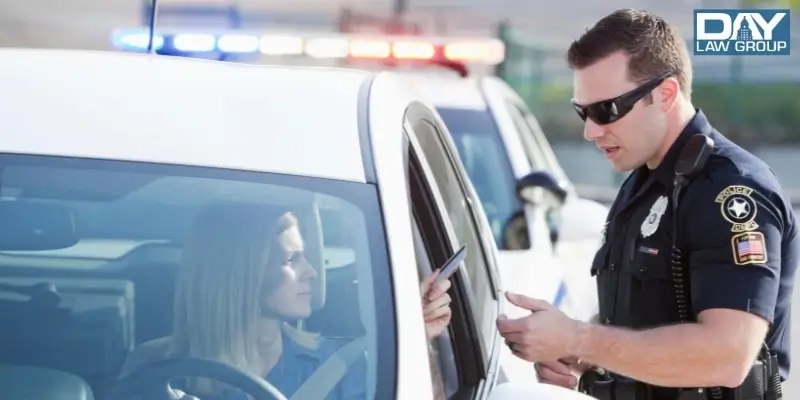What To Do If You Get Pulled Over By The Police in Louisiana?

Understanding what to do if you get pulled over by the police in Louisiana is important for every driver to know. Learning about the proper actions to take during a traffic stop can help you avoid unnecessary complications and allow the process to proceed with as little conflict as possible. You have rights in these situations, and knowing these rights beforehand can help ensure you are treated fairly. You can also file a complaint if you believe your rights were violated.
What to Do Immediately After Getting Pulled Over in Louisiana
When you see police lights behind you, act quickly and safely. Attempting to dodge or outrun the officer will only result in worse penalties in the future. Some helpful first steps include:
- Turn on your hazard lights to let the officer know that you see them and are willing to comply.
- Try to pull over away from traffic. This should be a safe place like a road shoulder or well-lit parking lot. Do not stop in the middle of a busy road or intersection or block traffic. Once you have safely pulled over, turn off the engine so that the officer knows that you will not try to escape.
- While waiting for the officer to approach, turn on the interior lights of your vehicle if it’s nighttime or difficult to see so that the officer can see the inside of your car clearly. Stay in the vehicle until they arrive so the officer can feel safer. Roll your window down enough to speak with them and hand them any necessary documents.
- Put your hands on the steering wheel in clear view of the officer and avoid moving them unless you have informed the officer of this ahead of time. Sudden movements can frighten the officer because they might believe you are reaching for a weapon. Act slowly and deliberately to reduce the risk of a dangerous misunderstanding.
- Follow the officer’s requests as needed by providing them with necessary information like your driver’s license, proof of insurance, and vehicle registration. If possible, try to gather these documents ahead of time to be prepared for the interaction. Be respectful in your communication with the officer. You can ask why they pulled you over, but do so in a polite way.
- You have the right to remain silent and not answer certain questions, but you must follow instructions. If they ask you to leave the vehicle, it is usually the safest for everyone to do so calmly and without argument.
In general, try to stay calm and avoid confrontation to limit additional penalties or complications to your case. It can be difficult to defend your actions if you were acting in a violent or aggressive way towards the officer during a traffic stop.
Searches and Tests
If a driver consents to a search voluntarily, law enforcement does not need additional proof to search their vehicle. In some cases, police officers can search a vehicle without the driver’s consent. This is usually limited to situations in which the officer has reason to believe the vehicle might have weapons, illegal items, or drugs or alcohol. However, if you are arrested, law enforcement can generally search the vehicle as part of the procedure.
Breathalyzer and sobriety tests follow different rules. Drivers technically consent to chemical tests if a police officer believes they are driving under the influence of drugs or alcohol. It is possible to refuse a breathalyzer test, but this usually comes with consequences like the suspension of a driver’s license.
FAQs
What Are Your Rights When Pulled Over in Louisiana?
When pulled over in Louisiana, you have many rights to protect yourself from accidental incrimination. You have the right to remain silent and do not have to answer questions about what you’re doing or where you’re going. You can also refuse a search, but in certain circumstances, the police might be able to conduct one anyway. Asking for the officer’s name and badge number is also a protected right if you would like to file a complaint in the future.
What Should You Do if You Think Your Rights Were Violated During a Traffic Stop?
If you think your rights were violated during a traffic stop, it is important to document the incident as much as possible. Write down everything you remember about the situation, details about the officer and their vehicle, and any information on witnesses. If necessary, seek medical attention and document the extent of your injuries. You can then file a complaint with the police department and speak with an attorney for more information on the next steps.
Can the Police Search Your Vehicle Without Your Consent in Louisiana?
Police can search your vehicle without your consent in Louisiana, but not in all circumstances. They can only search if they have a valid reason to believe that your vehicle contains evidence of a crime. This reason can include things like suspicious smells or seeing open containers of alcohol in the vehicle. Law enforcement can also conduct a search of your vehicle while you are arrested if that happens during a traffic stop.
Do You Have to Roll Your Window All the Way Down for Police in Louisiana?
You do not have to roll your window all the way down for police in Louisiana. However, you must be able to communicate with law enforcement, so you do need to roll your window at least some of the way down to speak with them and pass them documents. Other gestures, like keeping both hands on the wheel and avoiding sudden movements, can show cooperation and help de-escalate the situation.
Protect Your Rights on the Road
A traffic stop is usually a mundane affair, but knowing your rights can help you approach the situation calmly and respectfully. If you have questions or need legal assistance regarding a traffic stop, schedule a consultation with Day Law Group today. We can help you file a formal complaint and give you further advice on other actions you can take to seek justice if your rights have been violated.
Contact Us
Day Law Group Office Location
Contact Us
Choose Day Law Group
Fields marked with an * are required
"*" indicates required fields



